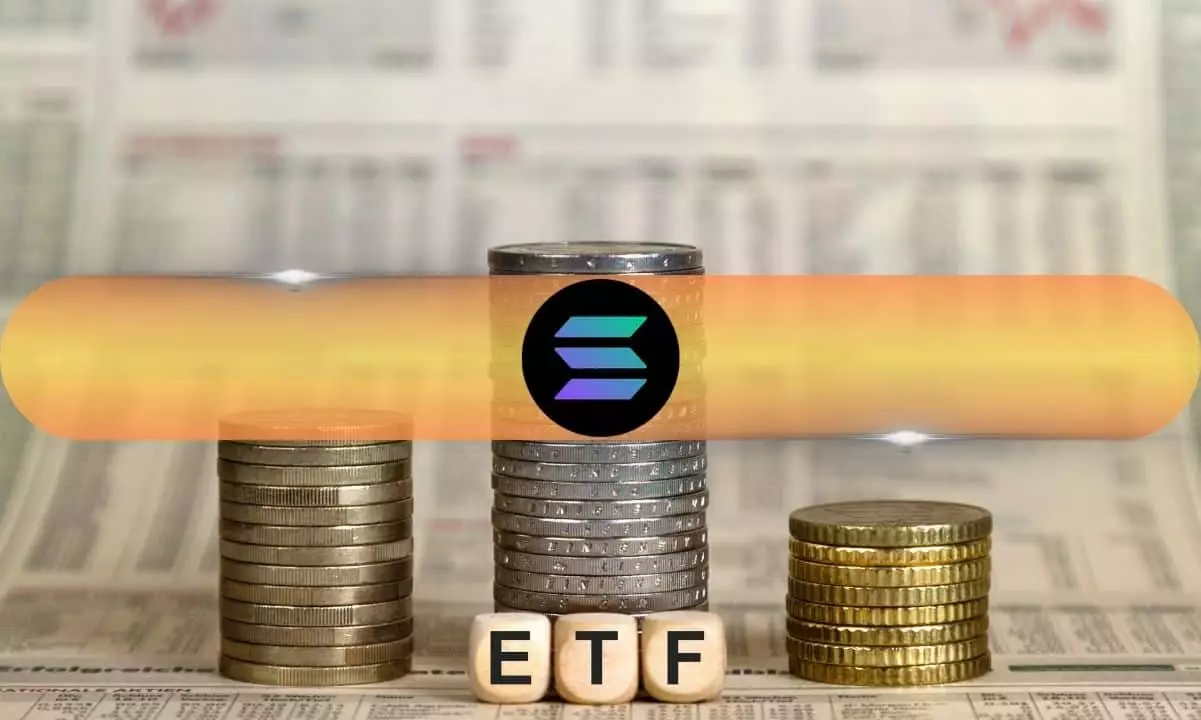Recent forecasts suggest that the cryptocurrency market is on the brink of a significant expansion in exchange-traded fund (ETF) offerings. According to Nate Geraci, president of the ETF Store, there is a possibility of encountering a surge in spot crypto ETF filings as major players such as Ripple (XRP), Cardano (ADA), and Solana (SOL) prepare for this anticipated shift. Following the recent U.S. elections, which saw the return of Donald Trump—known for his pro-crypto stance—industry experts speculate that this political development may catalyze a wave of new ETF applications as companies capitalize on potential changes in regulatory attitudes.
The shifting political landscape appears a pivotal moment for crypto ETF issuers. Geraci emphasized that there is “no downside to getting aggressive now,” implying that with favorable political winds at their back, issuers may be inclined to rush their paperwork. Although some firms are already positioned for swift action, the next few weeks in particular will likely clarify the potential for diverse offerings, especially as traditional investment avenues increasingly recognize the merit of digital assets.
Market Performance Fuels Investor Interest
This predicted influx of ETF filings comes on the heels of remarkable growth in spot Bitcoin ETFs, which presently account for over one million BTC—about 4.9% of Bitcoin’s total supply. Such performance reflects an escalating demand for varied crypto-backing financial instruments, appealing to a broader spectrum of investors. Notably, both Cardano and Solana have recently experienced substantial price surges, increasing by 83% and 32%, respectively, within a week. These rising asset values underline the growing confidence in these digital currencies and their potential attractiveness to institutional investors through ETF structures.
With the Chicago Board Options Exchange (CBOE) submitting applications for new funds dedicated to Solana, including the 21Shares Core Solana ETF and VanEck’s Solana Trust, it is clear that institutions are actively seeking to diversify their crypto offerings. Analysts have pointed out that the waiting period for these ETF applications will extend until mid-March 2025. Given the recent political shift, experts previously expressed that the November election results would significantly influence these applications’ success, assessing the chances of Trump’s victory as a critical factor.
The Role of Regulation in Crypto’s Future
As the political environment evolves, it is anticipated that the U.S. Securities and Exchange Commission (SEC) may adopt a less hostile regulatory stance towards cryptocurrencies. Current SEC Chair Gary Gensler’s tenure is under scrutiny, with speculations about his possible departure to make way for a more crypto-friendly appointment. Republican Commissioner Mark Uyeda’s recent calls for an end to the SEC’s rigorous oversight suggest a growing sentiment in Congress advocating for a more lenient approach to digital currency regulation.
If Geraci’s projections regarding new XRP, SOL, and ADA ETF filings materialize, the result could be a substantial enhancement of the cryptocurrency market, which has already experienced a 23% increase over the past week. This renewed interest from institutional players could further legitimize a wide array of cryptocurrencies, building on a foundation typically dominated by Bitcoin and Ethereum. As the crypto landscape continues to evolve amidst growing political support and favorable market conditions, investors remain keenly attentive to the developments surrounding ETF offerings that promise to redefine their engagement with digital assets.
















Leave a Reply